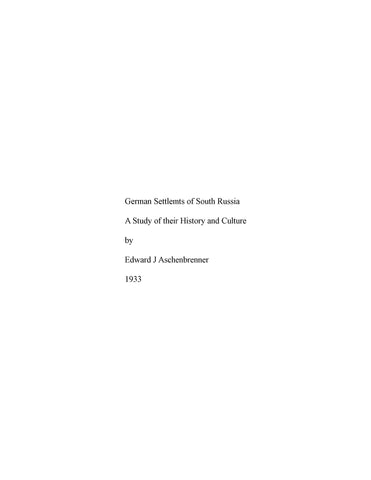
RUSSIA: German Settlements of South Russia: A Study of their History and Culture (Softcover)
by Edward J Aschenbrenner. 1933. 35p
The document discusses the significant role of the father of the bride in the betrothal process, emphasizing the need for flattery and approval during engagements. These engagements are formalized with the pastor's approval and are typically announced between Christmas and New Year's, highlighting the cultural importance of this period in the community.
The text also explores the reasons behind the emigration of Germans to Russia, particularly the poverty and lack of opportunities in Germany that drove many to seek better lives. The Russian government's colonization efforts attracted these immigrants, who ultimately made substantial contributions to agriculture, improving land and production in the regions they settled.
Additionally, the document describes the communal lifestyle of the Volga Germans, which included shared meals focused on simplicity and the preservation of cultural practices, language, and traditions. This strong sense of community and cultural identity among the German settlers in Russia played a crucial role in their adaptation and integration into the new environment while maintaining their heritage.
